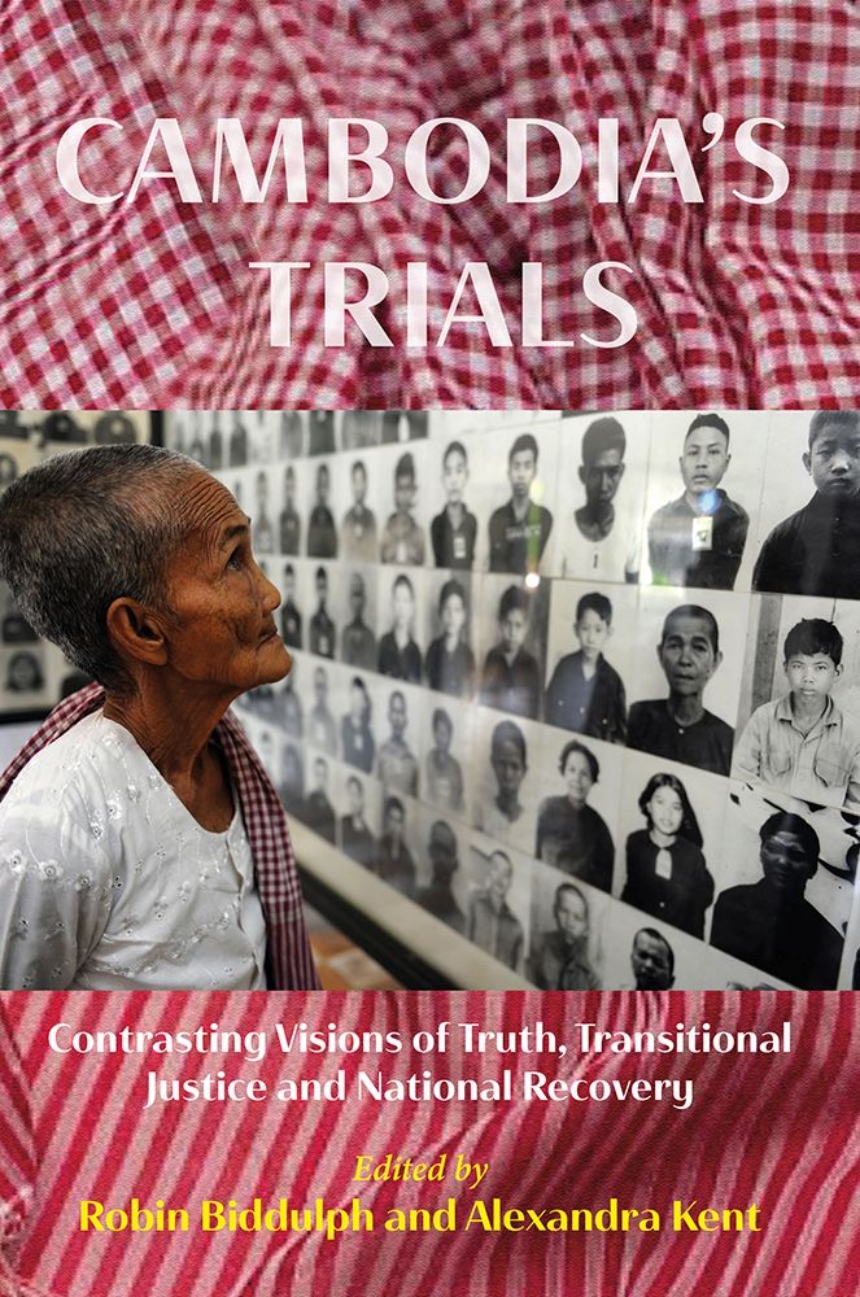Cambodia’s Trials
Contrasting Visions of Truth, Transitional Justice and National Recovery
9788776943318
9788776943301
Distributed for NIAS Press
Cambodia’s Trials
Contrasting Visions of Truth, Transitional Justice and National Recovery
New insights into understanding how Cambodia grapples with its traumatic historical past.
More than four decades have passed since the end of Khmer Rouge rule in Cambodia in 1979. Even so, the country is still coming to terms with the destruction wrought by the Khmer Rouge during both the time they were in power and during the period of guerrilla resistance that lasted until 1998. The Khmer Rouge Tribunal, or the Extraordinary Chambers in the Court of Cambodia (ECCC), was established in 2006 to bring the Khmer Rouge leadership to justice. In many ways a product of the 1990s, when liberal democracy appeared to be on the rise both in Cambodia and internationally, the ECCC was imagined as a transitional justice initiative that would help ease the transition to liberal democracy.
The ECCC has long been the focus of scholarly attention in Cambodia’s recovery, but this compelling study argues that such an approach is dated, noting that the political circumstances in which the ECCC was born have since changed profoundly, both globally and locally. Cambodia’s current situation can no longer be analyzed solely in terms of transitional justice narratives or the work of the ECCC, and other ways in which Cambodians have come to terms with their past and built new lives must be considered. By decentering the ECCC in the scholarly narrative of Cambodia’s recovery, the volume’s authors offer fascinating new insights into the Khmer Rouge period and more recent years of social, cultural, and political change in Cambodia.
More than four decades have passed since the end of Khmer Rouge rule in Cambodia in 1979. Even so, the country is still coming to terms with the destruction wrought by the Khmer Rouge during both the time they were in power and during the period of guerrilla resistance that lasted until 1998. The Khmer Rouge Tribunal, or the Extraordinary Chambers in the Court of Cambodia (ECCC), was established in 2006 to bring the Khmer Rouge leadership to justice. In many ways a product of the 1990s, when liberal democracy appeared to be on the rise both in Cambodia and internationally, the ECCC was imagined as a transitional justice initiative that would help ease the transition to liberal democracy.
The ECCC has long been the focus of scholarly attention in Cambodia’s recovery, but this compelling study argues that such an approach is dated, noting that the political circumstances in which the ECCC was born have since changed profoundly, both globally and locally. Cambodia’s current situation can no longer be analyzed solely in terms of transitional justice narratives or the work of the ECCC, and other ways in which Cambodians have come to terms with their past and built new lives must be considered. By decentering the ECCC in the scholarly narrative of Cambodia’s recovery, the volume’s authors offer fascinating new insights into the Khmer Rouge period and more recent years of social, cultural, and political change in Cambodia.
400 pages | 10 halftones, 1 map | 5.98 x 9.02 | © 2024
History: Asian History
Sociology: Social Change, Social Movements, Political Sociology
Table of Contents
Preface
Contributors
Introduction: Beyond Transitional Justice: Cambodians’ Continuing Struggles for Truth in a Troubled World
Section 1: Context
1. ‘Egregious Dysfunctions’: Transitional Justice in Cambodia’s Limited Access Order
2. Khmers Rouges and Khmer Rights
3. The Rhetoric and Language of Justice at the ECCC
4. Narratives of Complex Political Victims: Constructing Victimhood and Negotiating ‘Khmer Rouge’ Identity in Post-Conflict Cambodia
Section 2: Interactions
5. Upholding the Right to Effective Legal Representation in Cambodia: Lessons Learned from the Extraordinary Chambers in the Courts of Cambodia
6. The Extraordinary Chambers in the Courts of Cambodia: Failed Justice or Catalyst for Transformation?
7. Outsourcing Outreach: “Counter-Translation” of Outreach Activities at the Extraordinary Chambers in the Courts of Cambodia
8. Violent Ruptures, Collective Memory and the Temporal Borders of the ECCC in a Cambodian Village
Section 3: Beyond
9. Ecocide in the Shadow of Transitional Justice: Genocidal Priming and the March of Modernity
10. Beyond Transition: Local Experiences of Change in the Forty Years Since the Fall of Democratic Kampuchea
11. The Dead, Haunting, and Reordering Cambodian Society After the Khmer Rouge
12. From Khmer Rouge Soldier to Guardian Spirit: Memorialization, Transformation, and Reunification
Colour Illustrations
Index
Contributors
Introduction: Beyond Transitional Justice: Cambodians’ Continuing Struggles for Truth in a Troubled World
Section 1: Context
1. ‘Egregious Dysfunctions’: Transitional Justice in Cambodia’s Limited Access Order
2. Khmers Rouges and Khmer Rights
3. The Rhetoric and Language of Justice at the ECCC
4. Narratives of Complex Political Victims: Constructing Victimhood and Negotiating ‘Khmer Rouge’ Identity in Post-Conflict Cambodia
Section 2: Interactions
5. Upholding the Right to Effective Legal Representation in Cambodia: Lessons Learned from the Extraordinary Chambers in the Courts of Cambodia
6. The Extraordinary Chambers in the Courts of Cambodia: Failed Justice or Catalyst for Transformation?
7. Outsourcing Outreach: “Counter-Translation” of Outreach Activities at the Extraordinary Chambers in the Courts of Cambodia
8. Violent Ruptures, Collective Memory and the Temporal Borders of the ECCC in a Cambodian Village
Section 3: Beyond
9. Ecocide in the Shadow of Transitional Justice: Genocidal Priming and the March of Modernity
10. Beyond Transition: Local Experiences of Change in the Forty Years Since the Fall of Democratic Kampuchea
11. The Dead, Haunting, and Reordering Cambodian Society After the Khmer Rouge
12. From Khmer Rouge Soldier to Guardian Spirit: Memorialization, Transformation, and Reunification
Colour Illustrations
Index
